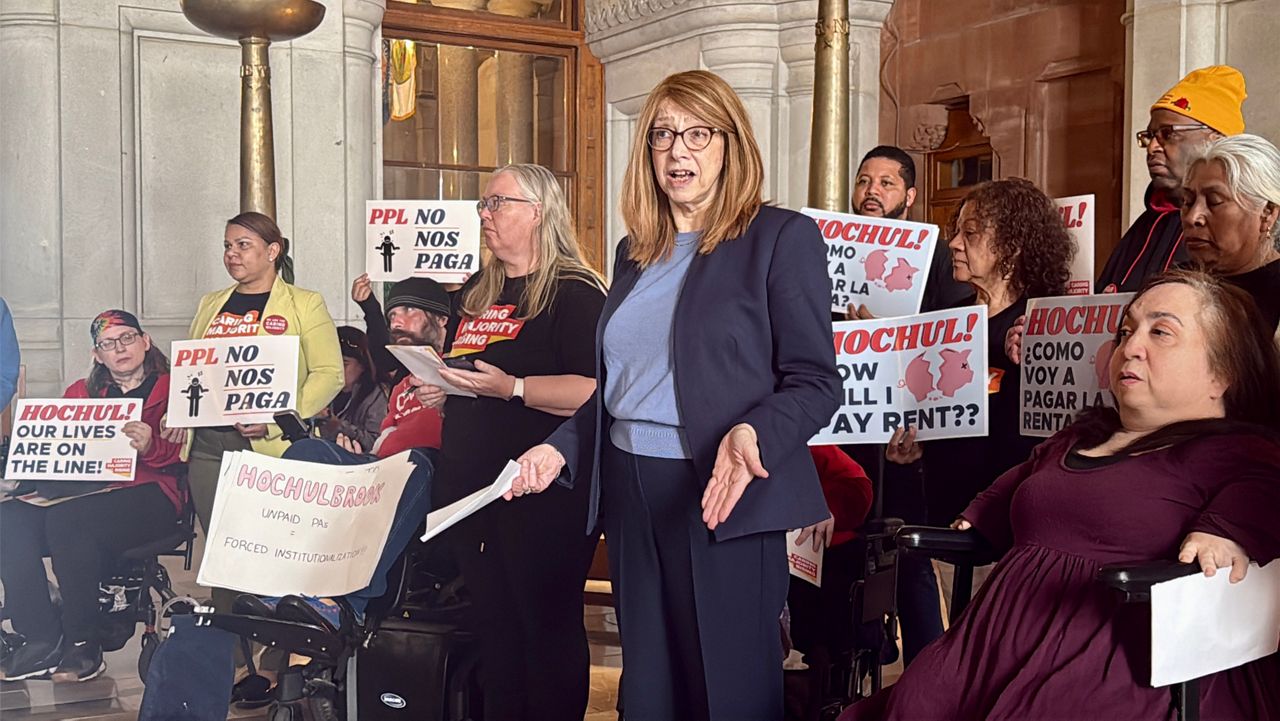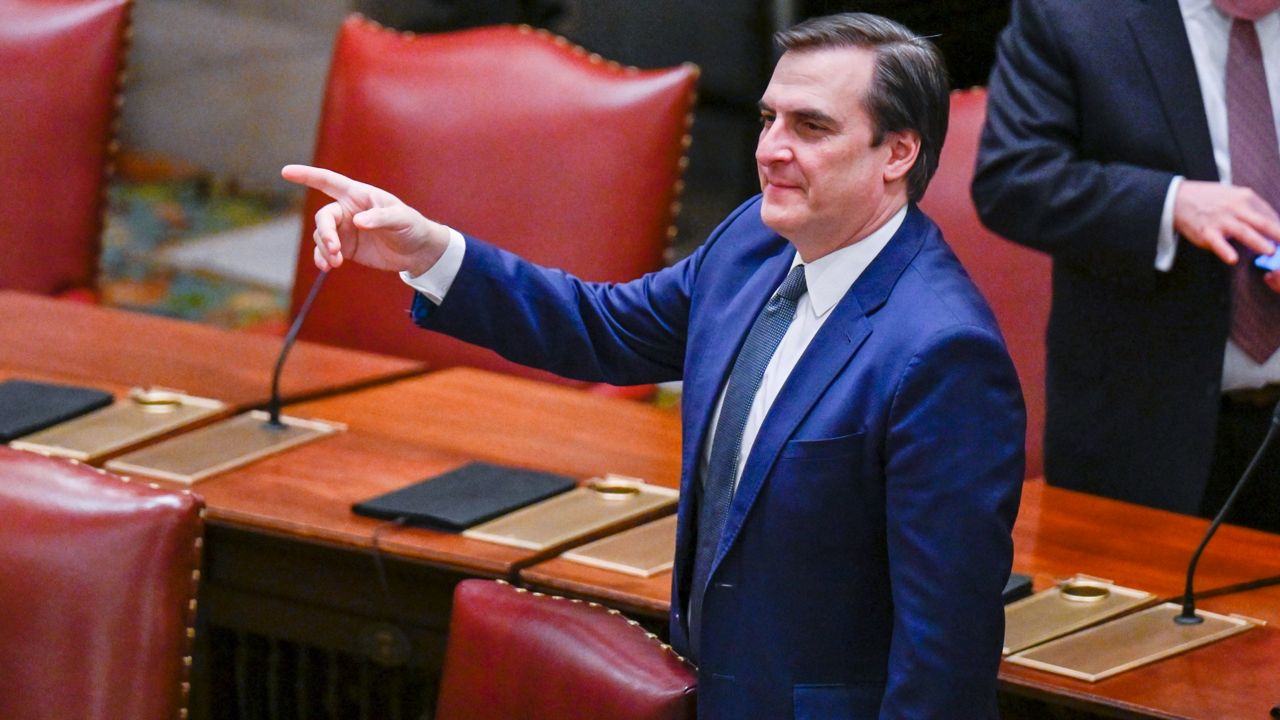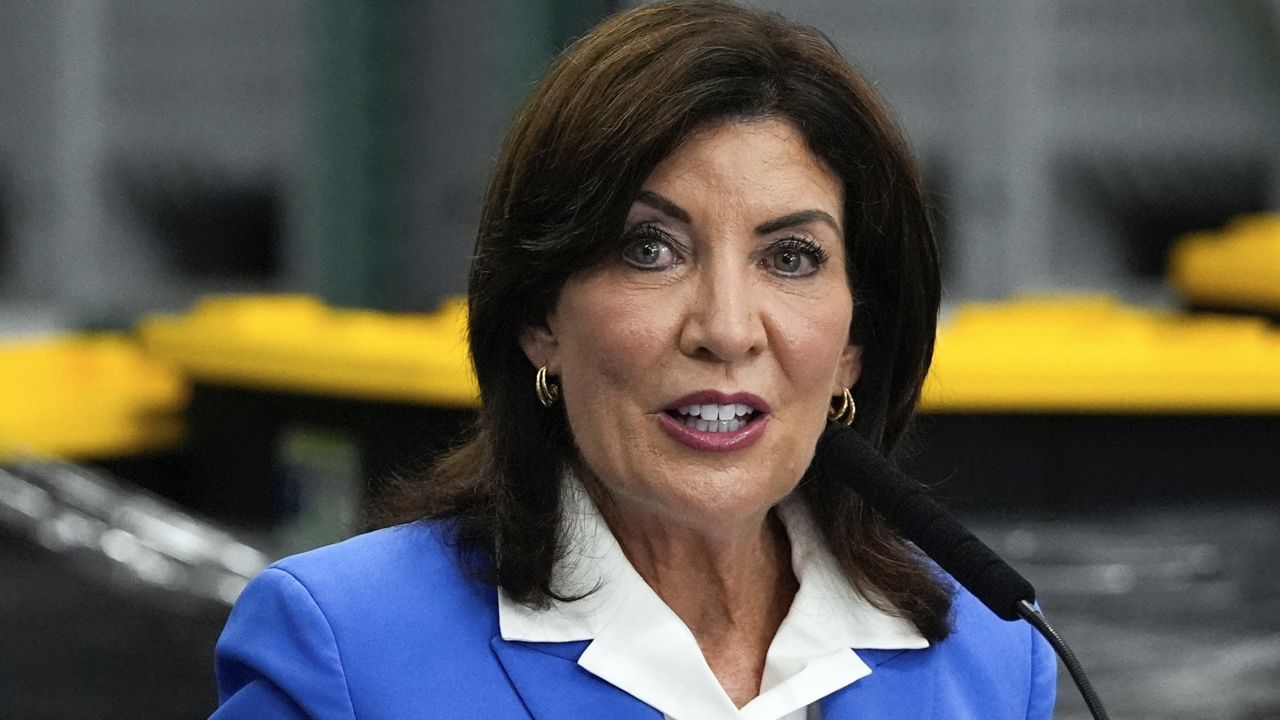As migrants arriving in New York City continue to be transported elsewhere in the state, lawmakers are introducing several pieces of legislation they hope will improve communication between localities if asylum seekers need to be relocated.
The Legislature may consider taking action as state leaders have requested guidance from the federal government for months without an update. Lawmakers won't be returning to Albany to pass legislation for months, but they're starting conversations now about how the state can alleviate issues as migrants from the southern border arrive in the city and are sent elsewhere without notice from officials.
Assemblyman Angelo Santabarbara on Tuesday introduced a bill to mandate notification at least 30 business days before relocation, and require monthly reports with the number of people transported, their ages, sex and country of origin.
"Government officials shouldn't be taking actions that hurts citizens in any way, but what we're seeing is that's happening — hence the need for this bill," said Santabarbara, a Democrat from Rotterdam.
The proposal was spurred by New York City Mayor Eric Adams' decision last week to send hundreds of migrants without notice to a hotel in Rotterdam, Schenectady County, which caused dozens of other vulnerable people receiving help from the local social services department to be displaced. It's unclear where many of them, including some homeless and disabled people, have gone since.
"That is completely unacceptable," Santabarbara said. "We don't want to see that happening again."
City officials have called motels in nearby Amsterdam and Schenectady in preparation to secure other upstate locations to send additional busloads of asylum seekers. State and federal lawmakers have said they've contacted Adams' office without getting a response for more than a week.
"Mayor Adams personally notified electeds from across the state months ago that we would soon need to seek the help of other communities in finding space to shelter migrants with NYC covering the costs," a spokesperson with the mayor's office said in a statement Wednesday. "Since that time, our team has reached out before migrants are moved to local communities, including to Schenectady."
Representatives with Adams' office did not respond to questions about who they contacted and when.
Santabarbara says he'll push for the legislation to be considered if lawmakers return for a special session to complete other business later this year. Legislative leaders have not discussed a return to date.
If his new proposal became law, the required reports would be made public on a government website, and also include how much the original municipality spent in resources for the asylum seekers and information about people under the U.S. Immigration and Customs Enforcement Alternatives to Detention program.
It's information Assemblywoman Jessica González-Rojas says could threaten asylum seekers' public safety, and should not be publicized.
"There's only a certain amount of locations that many of the migrants may end up in, and we certainly want to make sure we're protecting their identity," she said Wednesday.
González-Rojas wouldn't vote for the bill as-is, but said she'd consider support if proper changes are made. The assemblywoman supports parts of the proposal to improve transparency to localities about where people will be sent.
"We don't want buses of folks showing up in communities that are not ready to serve them," she said. "That doesn't help neither the community, nor the migrants who are arriving and ready to build a community for themselves and contribute to New York."
Other lawmakers, meanwhile, are introducing legislation in the coming days that would take Santabarbara's bill a step farther.
Republican Sen. Jim Tedisco, of Schenectady, is expected to introduce a proposed law Thursday morning to require the same 30-day notification for localities, but also allow them to refuse taking asylum seekers if they pass home rule legislation.
"We're putting teeth into the law that says 30 days' transparency can be evaluated by the local municipality, if they show that they can't accept it, and they pass a resolution to reject it," Tedisco said.
The proposal mandates the responsible municipality pay $1,000 a day, per person if asylum seekers are transported to areas that passed a local law rejecting their arrival.
Tedisco says the added enforcement would increase the likelihood municipalities respect each other.
"They can evaluate if they could take them, and work with New York City," Tedisco said.
Lawmakers say they're open to putting their proposals together, and making necessary tweaks to gain support.
State Association of Counties Executive Director Stephen Acquario said Wednesday the issue continues to impact New York local governments. The organization has not taken a position on the proposals, and needs additional time to review the details.
“Obviously, this is an issue affecting many counties across the state," Acquario said in a statement. "We appreciate the intent of the sponsor, in particular the need for more transparency and timely transmission of more information. While the association will not be entering a formal position on this bill at this time, we look forward to working with the sponsor, the legislature, and the governor to more effectively address the many challenges involved in the transfer of asylees to different parts of the state.”
González-Rojas has called on Adams to be more transparent about where migrants will be sent in the state to improve relationships and New Yorkers' acceptance of asylum seekers.
She and other state leaders continue to call on the federal government for additional funding and resources to care for asylum seekers, and to expedite their work permits and waive the 180-day waiting period.
"Communication between county executives and local elected officials are really critical to make sure that our community like our new New Yorkers are best set up for a successful life here," she said. "[But] a lot of this could be done without legislation and continued partnership through the various elected levels of government."










